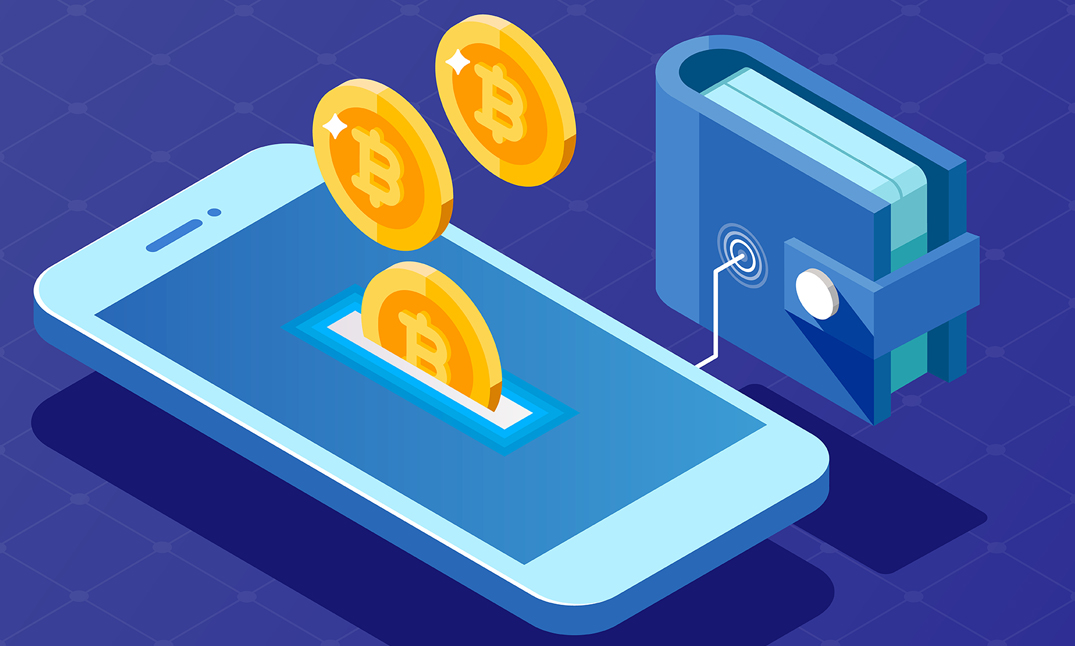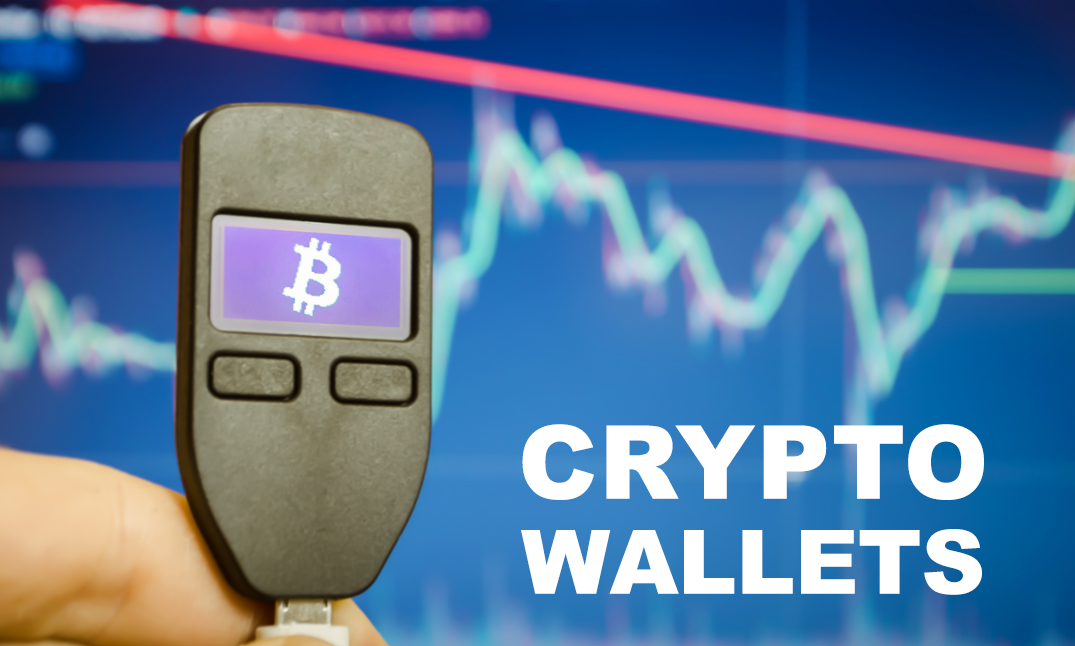Do I Need a Crypto Wallet?
Over the past few years, Bitcoin, various altcoins, and blockchain technology have been pushing their way into the spotlight, so much so that its critics, the media, as well as the government, have been forced to rethink their stance on cryptocurrencies. Because of this, the interest in digital asset investments has grown substantially, further validating its legitimacy.
With that said, if you’re one of the many people who have recently jumped on the crypto bandwagon, you may be asking yourself, “Do I need a crypto wallet?”. Well, I’m here to answer that question for you, as well as provide other essential information pertaining to virtual wallets, all with the goal of helping you become an intelligent and informed investor. So, let’s get started and dive right into it:
Do I Need a Crypto Wallet?
Because of the nature of blockchain technology, which is the foundation of all crypto transactions, you actually do need a crypto wallet when buying, selling, exchanging, or purchasing with cryptocurrencies. Let’s find out why this is the case:
The Technology Behind Any Cryptocurrency Transaction is Why You Need a Virtual Wallet
I’m going to break down the basics of a digital wallet so you fully understand why you need one, and I’ll start by saying that one of the most important facts you should realize is that a crypto wallet doesn’t actually hold cryptocurrency. What it does hold are private and public key pairs that are represented by a string of numbers and letters.
The private key is like a secret password, as well as a digital signature that allows the key holder to make crypto transactions, and the public key is where a wallet address originates. When buying, selling, or transferring crypto, it all comes down to these public and private keys interacting with the blockchain, which discloses who owns the crypto and where it’s going or coming from.
Within a crypto transaction, key pairs (private and public) are verified by a network of crypto miners to ensure they match, and if they do, the transaction is approved, and the data is permanently written on the blockchain. Additionally, all the information pertaining to your crypto assets, such as how many you have, what types of coins you hold, the amounts that were bought and sold, and so on, will be represented as data on the blockchain.
So, as you can see, if you don’t have a wallet that contains the essential key pairs that unlock the ability to make transactions happen on the blockchain, then no cryptocurrency transactions would be capable of happening.
Do I Already Have a Wallet if I’m Using a Cryptocurrency Exchange?
Now here’s where the story gets interesting – you’ve just learned that transactions can’t take place without a crypto wallet, so you may be thinking about the fact that you’re currently making cryptocurrency transactions on an exchange such as Coinbase, but you’ve never bought or set up a wallet.
The reality is that you’re actually utilizing a crypto wallet, but it’s a hosted or custodial wallet. This is where your private and public keys are managed by a third party, and the keys are stored on their servers. This hands the responsibility of safeguarding your private key and your virtual assets over to the exchange. All you have to worry about is keeping track of your platform username and password. A wallet such as this, that’s online, or continually connected to the internet is also referred to as a hot wallet.
The opposite of this would be a non-custodial wallet where you have complete control of your private keys, wallet, and your crypto. This wallet type is preferred by many seasoned investors, but keep in mind that you also bear the responsibility of safeguarding your private key and crypto with a non-hosted wallet such as this.
Should I Have My Own Non-Custodial Crypto Wallet?
Even though the main topic I’ve been discussing is “Do I need a crypto wallet?”, now that you know you do need one, and that you’re probably already using a wallet through an exchange, the real question is, “Do I need my own crypto wallet?”, one that’s non-custodial.
Using a custodial wallet that’s hosted by an exchange such as Coinbase, Binance, or KuCoin is fine, especially for new investors. However, once you begin gaining some traction in your crypto journey, and start growing your portfolio, it would be wise to also have your own non-custodial wallet. There are a few reasons why you should consider this advice, which we will go over in detail.
Why It’s Recommended That You Also Have a Non-Custodial Wallet
As mentioned, having a custodial wallet through an exchange is absolutely fine; I even have one. But you should consider upping your game by also having a non-hosted wallet if you want to trade seriously and securely – here are a few points to consider:
1. Provides Full Control Over Your Private Key and Crypto
A non-custodial wallet is actually a great representation of cryptocurrency itself because the technology behind crypto was designed to be decentralized and meant to put the control in the hands of the individual investors. Although exchanges that host your wallet do have their advantages, many crypto enthusiasts hate the idea of not having full control over their private key, and therefore their cryptocurrency.

When it comes down to it, in a hosted wallet configuration such as this, the investor can’t execute any buying or selling without the third party’s involvement – this, in a sense, puts the exchange in the driver’s seat. So, you have to ask yourself, am I ok with someone else having control over my digital assets? Maybe you prefer this type of setup, but if you don’t, you may want to look into getting a non-custodial crypto wallet.
2. Non-Custodial Wallets are Considered to be More Secure
If you only have a wallet that’s hosted by a third party, then you take the risk of having all your crypto vulnerable to online attacks if that exchange were ever successfully hit by cybercriminals. This scenario is possible because the custodian has access to your private key, and although they may have outstanding security, data breaches can happen to even the most secure companies. A solution to this is to keep some crypto attached to the hosted wallet within a secure online exchange for ease of use, while also keeping a substantial amount in a non-custodial wallet.
Although there are several options, a cold wallet, one that’s not continually connected to the internet, and keeps your private key offline, is a smart choice as far as security is concerned. This can be accomplished by purchasing a hardware wallet, which is similar to a USB drive. Hardware wallets allow for crypto transactions to be signed offline, on the device, using your private key that only you have access to. The private key is the heart and soul of a crypto wallet, and although an exchange can implement superior security measures, if someone other than yourself has access to your private key, you can never be 100 percent certain it’s going to be safe from cybercriminals.
What Crypto Wallet Should I Use?
If you don’t want all your cryptocurrency held on an exchange, and you’re looking for a good recommendation for an alternative way to store your assets, I recommend the following non-custodial wallets:
The Ledger Nano X Hardware Wallet
Ledger is one of the largest and most popular hardware wallet companies out there, alongside Trezor, and it’s known to produce reliable and in-demand products such as the Nano X Crypto Hardware Wallet. The Ledger Nano X is a non-custodial cold wallet in the form of a small hardware device that enables in-device crypto transaction signatures to take place, which keeps your private key offline and secure. The Nano X allows you to have up to 100 coin apps installed at the same time; this includes Bitcoin, Ethereum, Polkadot, and more, as well as 5,500 various tokens. Also, when using their downloadable Ledger Live software, you can conveniently manage, send, receive, and exchange crypto right from your smartphone (iPhone & Android) or desktop computer using Bluetooth technology.
I’m recommending using the Ledger wallet because it’s what I use, and I’ll sum it up as a high-quality, secure cryptocurrency wallet that does its job in keeping your digital assets safe.
Ok, now let’s move on to my 2nd recommendation, which is geared towards those looking for a mobile-based crypto wallet:
Mycelium Mobile Software Wallet
If you plan on dealing in Bitcoin and you prefer a wallet that’s on the go, specifically, a mobile-based crypto wallet, I suggest using Mycelium. This company has been around for years, since 2008, so they’ve definitely stood the test of time.
Mycelium is a secure, non-custodial mobile software hot wallet (meaning it’s connected to the internet), that can be used with iOS or Android, and it enables the user to send and receive digital assets easily and securely. Although it was originally created as a Bitcoin wallet, it has expanded and also works with Ethereum, as well as ERC-20 tokens such as Binance USD, Tether USD, and more. In addition to this, the Mycelium wallet is feature-rich, and here are a few highlights:
- Offers hardware wallet support with Trezor, Ledger, and KeepKey, which enables investors to store their crypto using an offline storage hardware device, while also utilizing Mycelium’s user interface to view their holdings.
- Because it’s a non-custodial wallet, it offers you complete control over your private keys, which keeps your virtual assets secure.
- Allows for a fast connection to the Bitcoin network through supernodes.
- Offers several layers of pin protection for extra security.
- The Mycelium mobile software wallet is free to use.
Additional Crypto-Related Articles
If you want to take control of your financial situation, keep in mind that knowledge is power – the more you know, the more capable you are, and the more control you have over your life and your finances. With that in mind, I invite you to read the following articles that focus cryptocurrency and blockchain technology – I promise that you’ll find them interesting.
- Learn more about what a crypto wallet is and read our 2022 best suggestions for digital wallets.
- Dive into this post to find out how real estate purchases are being transformed by the benefits of blockchain technology.
- Read about the advantages of investing in tokenized rental real estate for fractionalized ownership.
Speaking of taking control of your financial situation, for those who are interested in building wealth and having financial freedom, whether it’s through cryptocurrency investments or something else, you’ll be interested in taking a look at this Financial Freedom Academy website.
Do You Need a Crypto Wallet? The Answer is Yes!
I hope this discussion has helped you gain some insight into why you do actually need a crypto wallet, whether it’s your own personal virtual wallet, or one that’s hosted through an exchange. Additionally, when it comes time to move some of your assets off an exchange and into a non-custodial wallet, at the end of the day, it’s all a matter of personal preference and specific needs as to which digital wallet you should use.
I also hope that my non-custodial wallet suggestions have guided you in the right direction, and if you’re interested in checking out more crypto wallet recommendations, head over to our related article titled – What is a Crypto Wallet? Plus Best Suggestions for 2022.
For those cryptocurrency enthusiasts out there, you’ll also want to dive into this interesting interview I had with Michael Saylor on Crypto News Daily – his take on Bitcoin might surprise you:










